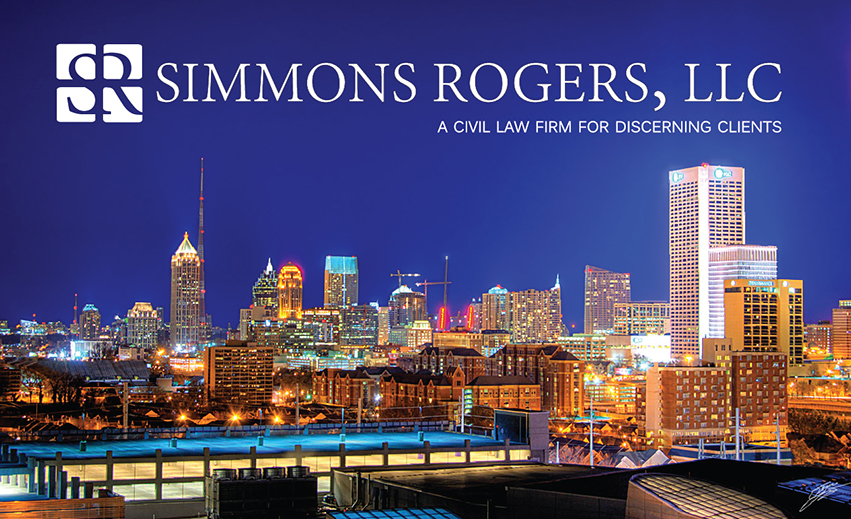 Courtroom battles can be lengthy and subject a business to lots of undesired publicity. Over the years, many businesses and individuals have decided to resolve their legal disputes using alternative dispute resolution ("ADR") methods such as mediation or arbitration. These methods are much quicker, private, and at times less costly than traditional litigation. In fact, if you were to review many of the contracts that you have entered into over the years, you would discover many businesses require disputes to be resolved using some method of ADR - typically arbitration. This post will cover the basics of arbitration and the impact of choosing arbitration over traditional litigation. For a discussion of mediation, please see our post, “The 411 on Mediation”. What is arbitration? Arbitration is an ADR method in which a neutral person, or a group of persons, selected by the parties renders a decision to settle a dispute after hearing each party’s side of the case and reviewing the evidence. How does arbitration work?
What is the arbitrator's role? The arbitrator is essentially the judge for the arbitration. However, unlike traditional litigation where the parties have little to no choice over which judge they get, the parties usually select the arbitrator. The arbitrator will preside over the proceedings, make rulings on briefs, resolve discovery disputes, settle evidentiary issues, evaluate the evidence presented, and then make a decision. You can choose whether the arbitrator issues a basic standard award, announcing only the outcome of the case, a reasoned award, explaining the arbitrator's reasoning behind the decision in addition to the decision itself, or a detailed award that includes findings of fact and conclusions of law in addition to the decision. Who can serve as an arbitrator? Anyone can serve as an arbitrator provided they have the requisite training or certification required by his or her respective state, country, or industry association. Typically, arbitrators are former judges, lawyers, or a professional with particular knowledge of the facts involved in the case. What are the benefits of arbitration?
What are the risks of arbitration?
Arbitration vs. Mediation The goal of arbitration is for a third party to reach a decision for the parties involved in a case, while the goal of mediation is for the parties to resolve the case themselves. In arbitration, the decision is made entirely by the arbitrator. On the other hand, in mediation the mediator hears each party’s side of the case and then assists the parties in negotiating with the hopes that the parties can reach a settlement. It is possible that parties will participate in a mediation, fail to reach a resolution, and then engage in arbitration regarding the same dispute. Deciding whether to litigate, mediate, or arbitrate can be difficult. There are benefits and risks with all three. If you would like to discuss your legal matter and the various avenues available for resolution, or you are looking for an experienced neutral to serve as either an arbitrator or mediator for your case, please do not hesitate to contact Simmons Rogers, LLC at 404-445-8260 or [email protected].  Mediation is an effective way to resolve any type of dispute; from squabbles between neighbors to large claims worth millions of dollars. Differences that cannot be resolved between the parties can lead to expensive, time consuming, public battles that involve lawyers and courts - unless alternative dispute resolution (ADR) methods, like mediation, are utilized. Mediation is a great way for businesses and individuals to resolve problems. Even after a lawsuit has been initiated, mediation is a practical way of reaching an agreement that could end the lawsuit. As long as the parties involved in the dispute are willing to meet to discuss the issues separating them, it is likely that a mutually agreeable settlement can be reached. What is mediation? Mediation is an opportunity for a mediator to facilitate a mutually acceptable settlement agreement between the parties involved by offering the parties an opportunity to:
What is the role of a mediator? A mediator is a third party neutral that will find points of agreement between the parties and facilitate movement towards a mutually decided upon agreement. A mediator should not dictate the decision, but instead help the parties develop their own resolution. What is the benefit of mediation? Mediation has several benefits that make it more beneficial than arbitration and litigation in certain contexts:
Once the parties agree on dates, mediations can be scheduled quickly. Remember, the advantages of mediation over litigation include privacy, reduced legal fees, control over the outcome, control of the process, a chance to salvage relationships, and control of your most important asset - your time. Simmons Rogers, LLC provides mediation services throughout Georgia, in all 50 states, and internationally. Contact us to learn more about our services or to schedule your mediation. Online scheduling is also available. FOR IMMEDIATE RELEASE Atlanta‚ Georgia − 11/05/2013 − After much prayer and preparation, it is a pleasure to announce that Simmons Rogers, LLC is open for business. Simmons Rogers, LLC is a full service civil law firm based in Atlanta, Georgia serving clients throughout Georgia and beyond. Based at 3350 Riverwood Parkway SE, Suite 1900, Atlanta, Georgia, 30339, Simmons Rogers is conveniently located near I-285, 1-75, and Cobb Parkway. Simmons Rogers, LLC specializes in providing skilled and knowledgeable legal services in the following areas:
Feel free to share this information with your friends, colleagues, and family; and if we can ever be of service do not hesitate to contact us.
Simmons Rogers, LLC, a civil law firm for discerning clients, was founded in 2013 by Maya Simmons Rogers. Simmons Rogers, LLC provides a wide-range of legal services for businesses and individuals. For more information about our firm or to schedule a consultation, please contact us at [email protected] or 404-445-8146. |
Simmons Rogers, LLCSimmons Rogers, LLC is a full- service civil law firm based in Atlanta, Georgia. We provide legal services as well as mediation and arbitration services, to businesses and individuals throughout the state of Georgia and beyond. Archives
January 2018
Categories
All
This blog is not intended to be a complete explanation of the law. Its purpose is to inform, not to advise on any specific legal problem or legal rights. If you have specific questions regarding any topic in this blog, you are encouraged to consult the Atlanta based law firm of Simmons Rogers, LLC or an attorney licensed in your
state. |

Simmons Rogers, LLC
4045 Orchard Rd SE, Suite 210 Smyrna, Georgia 30080 Phone: 404-445-8146 Fax: 404-445-8226 E-mail: [email protected] |
LEGAL DISCLAIMER
The information on this website is for informational purposes only and is not legal advice. Use of this website does not create an attorney-client relationship between you and Simmons Rogers, LLC. You should not act upon the information within this website without seeking advice from a lawyer licensed in your own state or country. You should not send any confidential information to Simmons Rogers, LLC until and unless a formal lawyer-client relationship has been established in writing. Unless you have received such written confirmation, we will not consider any correspondence you send us as confidential. |
© 2013-2018. All Rights Reserved. Simmons Rogers, LLC
Attorney Advertising. The choice of a lawyer is an important decision and should not be based solely upon advertisements.
Privacy Policy
Attorney Advertising. The choice of a lawyer is an important decision and should not be based solely upon advertisements.
Privacy Policy


 RSS Feed
RSS Feed